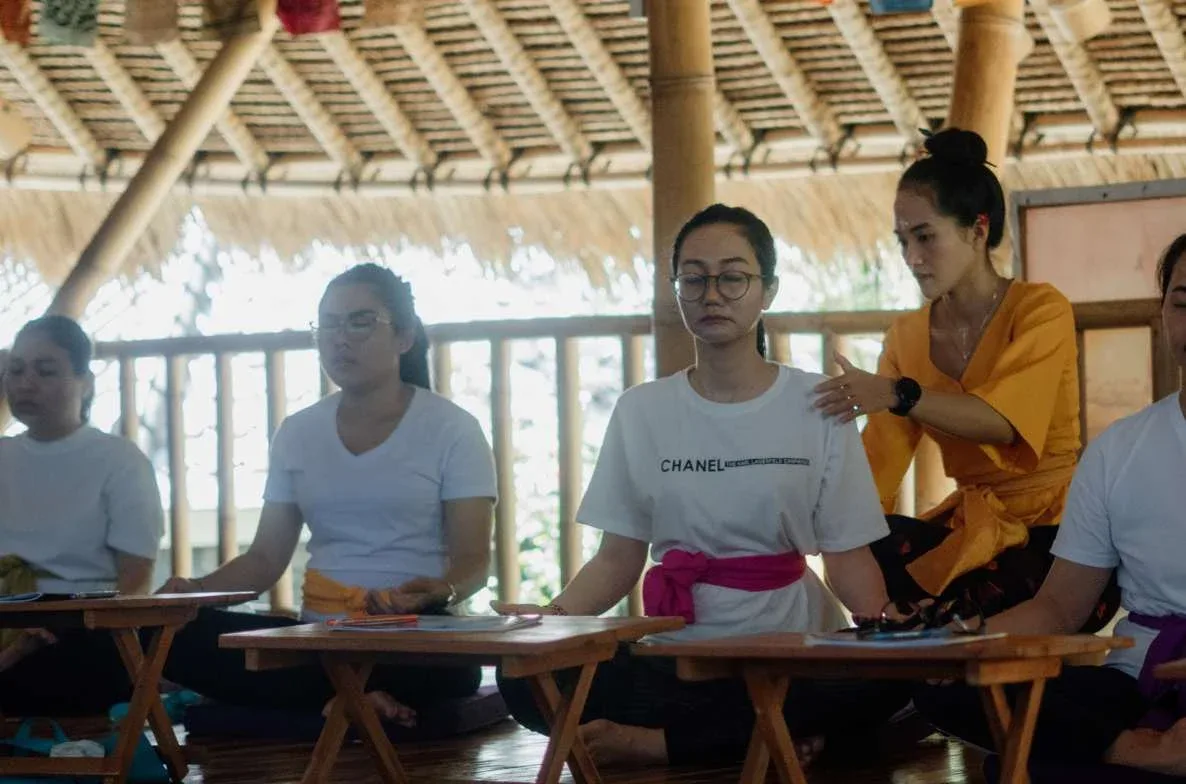Trauma Healing with Yoga in Ubud
Trauma Healing – Yoga in Ubud has many benefits consisting of decreasing anxiety and psychological clearness, and more, but there’s a particular kind of yoga that can provide support for the needs of some survivors. The following practice, known as trauma-focused yoga, concentrates on producing a helpful environment that’s customized to the needs of some survivors and helps individuals explore movement, understanding, and self-gesture.
Yoga in Ubud that concentrates on trauma healing thinks about the impact of trauma by focusing on safe methods, options, and understanding to increase self-awareness and durability. It looks for to accommodate varied experiences and improve healing for all individuals by reducing sets off and growing inclusivity in a risk-free and equipping space.
What is Trauma-Focused Yoga?
Unlike traditional yoga courses, which may follow a one-size-fits-all approach, trauma-focused yoga is customized to the unique needs and experiences of trauma survivors, focusing on options and inclusivity. This yoga highlights producing a risk-free environment and providing support for people that have skilled various kinds of trauma—including complex trauma, psychological trauma, (PTSD), and all other forms of anxiety,
The key to trauma-aware yoga is the recognition that trauma can build up in the body, leading to excessive worry, dissociation, and increased depressive responses. Trauma-informed yoga acknowledges the extensive impact that trauma can carry the body and mind, and looks for to integrate concepts of trauma level of sensitivity, mindfulness, and empowerment right into the practice of yoga in Ubud.
How is Trauma-informed Yoga Various from Traditional Yoga?
Although trauma-focused yoga and traditional yoga share elements of movement, breathing exercises and understanding, trauma-focused yoga is approached with a self-help approach to free yourself from excessive worry. Also focusing on safety, choice, empowerment, and a level of sensitivity to their unique needs and experiences. Here, we’ll explore the differences.
Yoga Concentrated on Trauma Healing
- Creating a risk-free space and providing support for individuals
- Prioritizing giving individuals company and company in their practice
- Attention to prospective causes
Concentrate on Safety and Level of sensitivity
Trauma-informed yoga places a solid focus on producing a risk-free and helpful environment for individuals. This consists of being familiar with the potential impact of trauma on individual experience and tailoring yoga methods accordingly. Traditional yoga may not constantly place a high degree of understanding or level of sensitivity to these trauma-related problems.
Options and Empowerment
Trauma-informed yoga places a high worth on giving individuals company and choice in their practice. This means offering options for design, movement, and adjustment, and encouraging people to pay attention to their bodies and deciding centered by themselves needs and limits. On the other hand, a conventional yoga practice may take a more prescriptive approach with much less versatility for individual choice and power.
Mindfulness and Self-Regulation
Trauma-informed yoga often integrates mindfulness methods to assist individuals develop greater self-awareness, self-regulation, and durability. Trauma-informed yoga aims to control the nerve system by integrating mindfulness methods to advertise leisure. This practice can provide support for trauma survivors as they get in touch with their present experiences, overcome challenging feelings, and develop coping abilities. While mindfulness can be an aspect of Traditional Yoga, trauma yoga retreats place the focus on its restorative benefits for trauma survivors.
Baca Juga: Pasraman Bali: Best Yoga in Ubud 2024
Level of sensitivity to Causes
Trauma-aware yoga is conscious of potential causes that may cause trauma survivors to re-experience trauma and takes actions to minimize their impacts. This may consist of yoga treatment that prevents certain language, codes, or physical reconciliations that may be triggering and provides opportunities for individuals to not participate in tasks or take damages as needed. On the other hand, a yoga trainer may not constantly understand of or familiar with these potential causes throughout a Traditional Yoga course.
Versatility and Inclusivity
Trauma-aware yoga looks for to be comprehensive and flexible to the varied needs and experiences of its individuals. This means that the yoga instructor will acknowledge that each individual may have various degrees of convenience, movement, and stamina to participate in the practice and make appropriate reconciliations. Yoga courses for trauma healing may not constantly highlight this degree of inclusivity or versatility.


